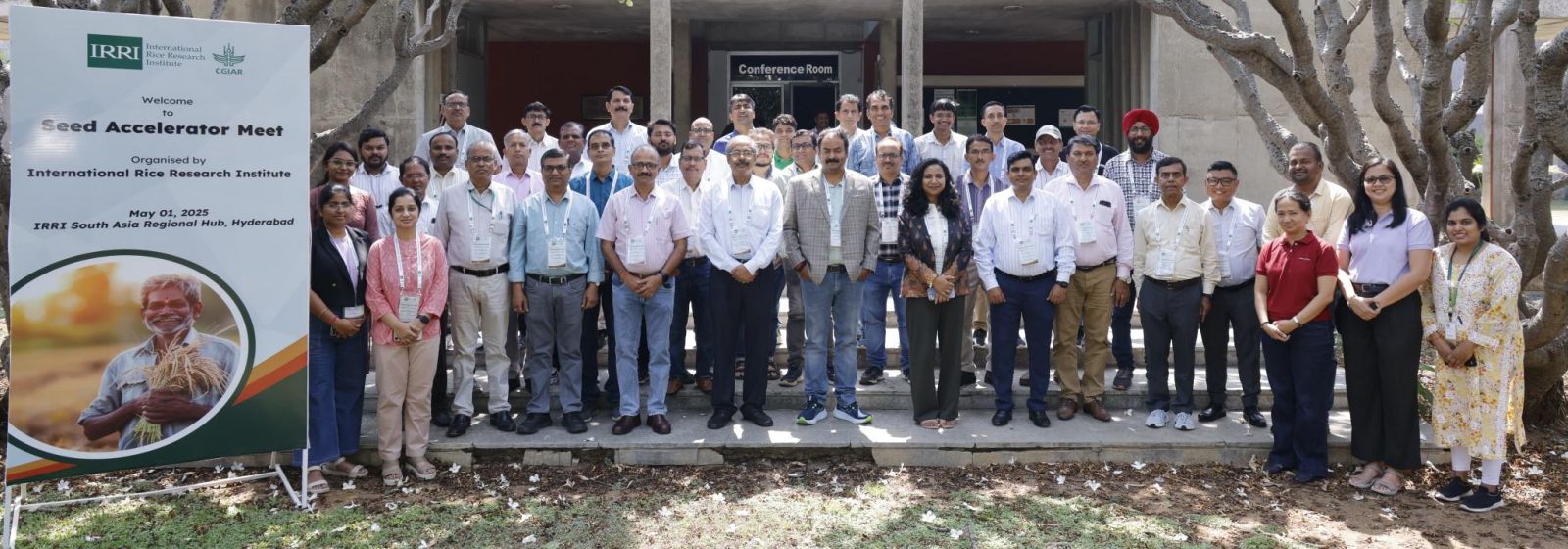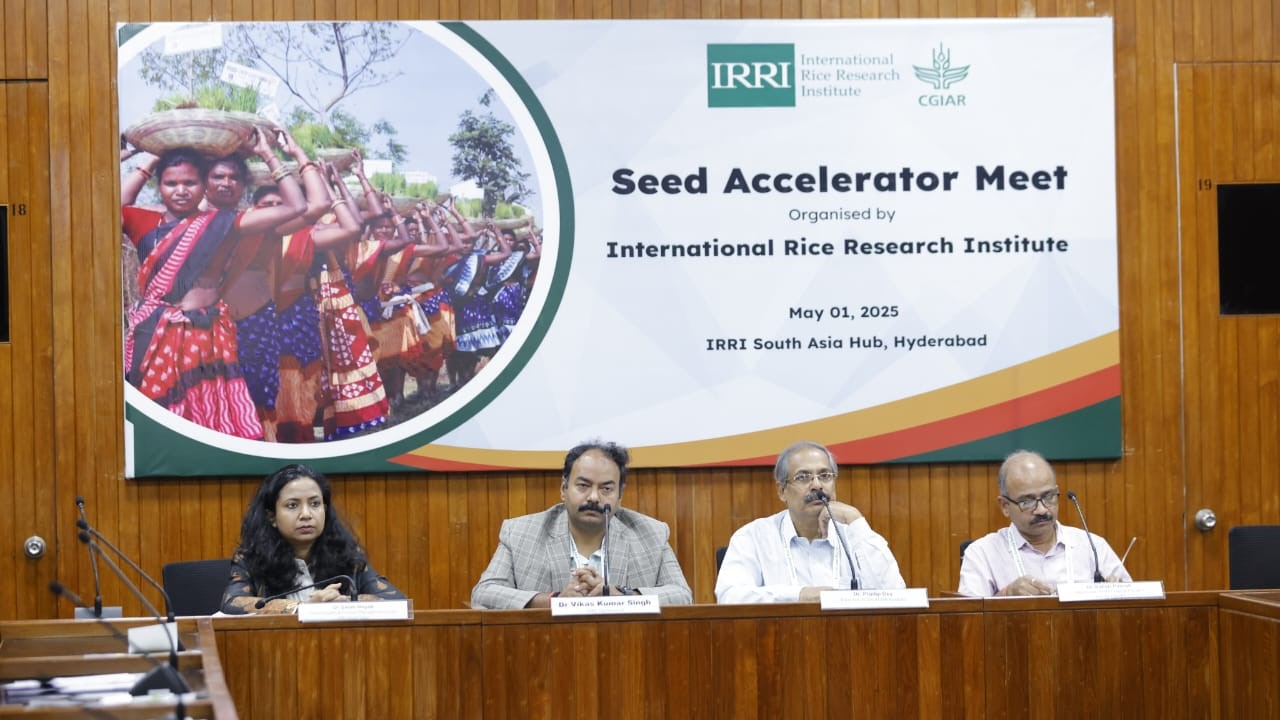IRRI hosts Seed Accelerator Meet to accelerate deployment and positioning of new rice varieties through robust public–private partnership in India

HYDERABAD, India (01 May 2025) - To accelerate the adoption of newly released, high-performing rice varieties in India, the International Rice Research Institute (IRRI) convened a national-level gathering of the country’s key rice seed system stakeholders at the Seed Accelerator Meet 2025 in Hyderabad. The event aimed to strengthen India’s rice seed delivery ecosystem by enhancing coordination between research institutions and seed commercialization and delivery partners across the public and private sectors.
India, while being the world’s leading rice producer, continues to face low per-hectare productivity due to the widespread use of older, less resilient varieties. Market demand for improved rice with value-added traits is increasing. Although advanced varieties have been developed through IRRI’s collaboration with India’s National Agricultural Research and Extension System (NARES), adoption remains low. Limited access to product information and lack of awareness among delivery partners slow down the uptake of these public-bred varieties. Without a proactive strategy for deployment, many promising varieties fail to reach their potential.
The Seed Accelerator Meet 2025 focused on closing this gap by promoting collaborative, demand-driven seed delivery mechanisms to bring climate-resilient, high-yielding, and nutrition-rich rice varieties to farmers.

The event was led by IRRI’s Dr. Swati Nayak, South Asia Lead for Seed Systems, and Dr. Vikas Kumar Singh, South Asia Regional Breeding Lead. It included participants from state seed corporations, private seed companies, small and medium seed enterprises, ATARIs, and farmer producer companies (FPCs).
Dr. Sankalp Bhosale, Interim Head of IRRI’s Rice Breeding Innovations Platform, opened the event by emphasizing the importance of timely varietal turnover. “The opportunity cost of delayed adoption is high,” he said. “With advanced genotypes from the IRRI–NARES partnership, stronger linkages between breeding pipelines and distribution networks are needed across different agroecologies.”
In her welcome address, Dr. Nayak noted the central challenge. “In public R&D, the issue is often not the product, but the delivery. We aim to enable faster, market-aligned varietal replacement through data-driven partnerships and inclusive seed systems.”
The event highlighted IRRI’s One Rice Breeding and Seed System Strategy, which combines breeding, farmer-led validation, and seed delivery. The strategy supports identification of market segment needs, on-farm validation, early generation seed linkages, and timely varietal targeting.
Dr. Singh explained how IRRI’s breeding pipeline supports national goals. “We have aligned data, breeding, and delivery in a single pipeline. This supports handover of promising varieties to seed partners and reduces delays.”
One session shared data from three years of adaptive on-farm trials across different agroecologies. The trials showed high yield, better grain quality, and strong stress tolerance in new rice varieties.
Dr. Linga Reddy Gutha, Senior Manager - Business Development, IRRI Tech Transfer, introduced IRRI’s germplasm sharing mechanism and invited partners to express their interest in early-generation seed (EGS) of high-performing varieties.
Focused group discussions identified opportunities to improve the seed value chain. Participants outlined a roadmap with the following actions:
- Improve collaboration among breeders, seed companies, and extension actors
- Use adaptive trial data for targeted varietal deployment
- Expand access to breeder seed and licensing pathways
- Strengthen regional seed enterprises through capacity support and investment
At the event’s conclusion, conveners urged all stakeholders to strengthen their role in building an agile and inclusive seed system.
“We are in a new phase of rice agriculture that requires alignment and partnerships,” said Dr. Nayak. “With national and private partners, we can ensure rice farmers access better seeds suited to current climate and market needs.”
The Seed Accelerator Meet 2025 reinforced IRRI’s role as a strategic partner in India’s rice sector. Outcomes from the event will guide national strategies on varietal deployment and seed system development.
This meeting/initiative also contributes to IRRI’s work under the CGIAR Breeding for Tomorrow (B4T) Science Program through the Inclusive Delivery area of work . The program aims to drive productivity, increase varietal adoption, and support more resilient and farmer-focused food systems by embedding market insights into breeding pipelines across Africa and Asia.